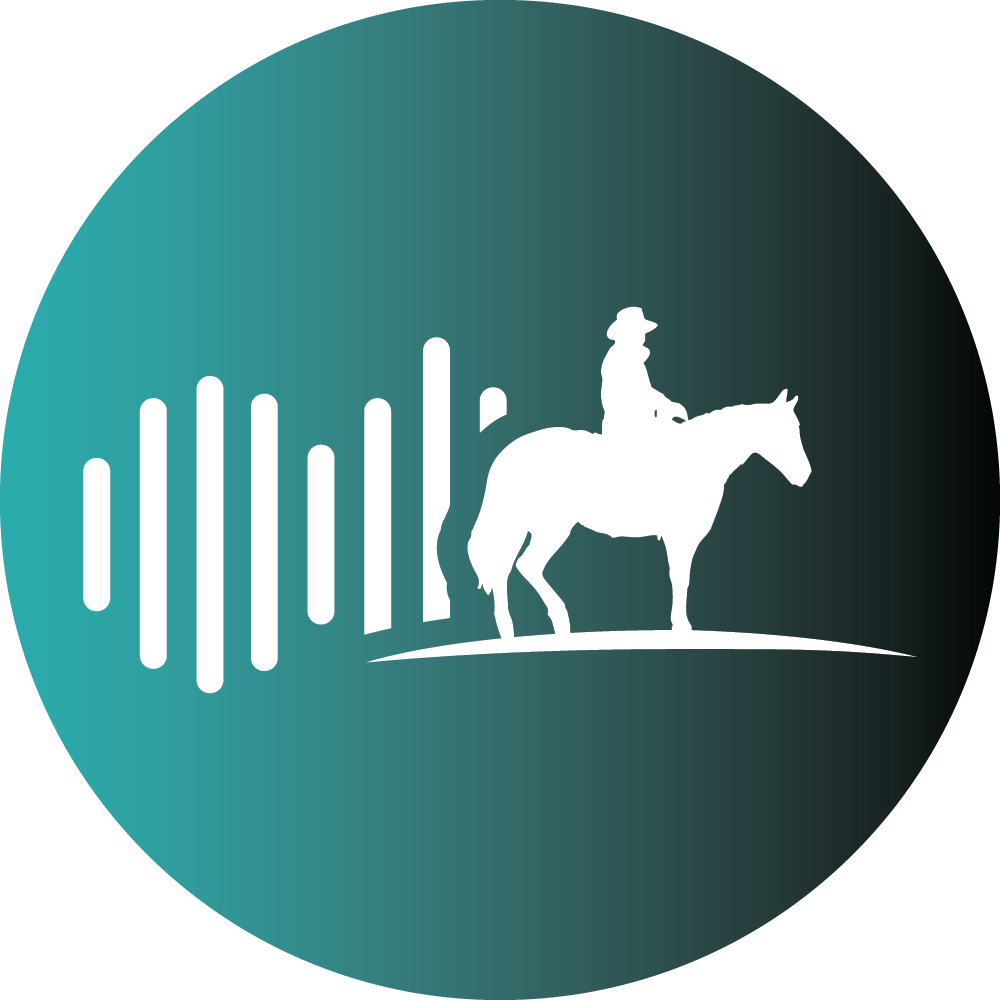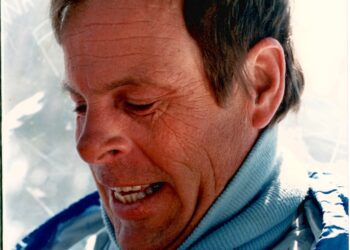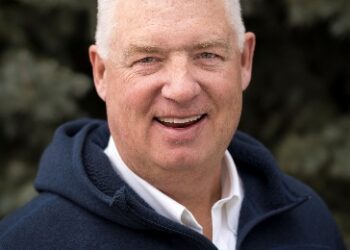Gubernatorial candidate seeks to support Montanans both in crisis and moving forward
By Bella Butler EBS EDITORIAL ASSISTANT
MISSOULA – Montana gubernatorial candidate Whitney Williams retains a devout belief that Montanans are more alike than they are different. During a time when the national paradigm of polarization fissures a rift between the left and the right, and in the midst of the COVID-19 coronavirus pandemic, the sixth-generation Montanan believes Montana abides by a different set of values.
“There is not a great divide in Montana,” Williams said in a recent interview with Explore Big Sky. “We like our neighbors, we still wave at each other, we still pull each other out of a ditch, and at the end of the day we will take care of each other.”
It’s this vision of her home state that propelled Williams to run in the 2020 Montana gubernatorial election atop a platform of issues that she identifies as core concerns for all Montanans—on both sides of the political aisle.
During her recent 56-county tour, countless conversations with residents have strengthened her passion for her campaign’s focuses, pre-kindergarten education, pharmaceutical justice and protecting public lands, as well as bolstered her platform with additional points of interest such as renewable energy expansion and providing mental health services.
Williams grew up indoctrinated with a duty to serve the public. Having been raised by Pat Williams, Montana’s longest-serving congressman, and Carol Williams, Montana’s first female majority leader, Williams has a deep appreciation for the role government plays in the lives of many, but much of her life has been spent serving the public through her company, williamsworks, which seeks to advise Fortune 500 companies and private citizens to come together to address global challenges.
In the rough social and economic waters stirred by the COVID-19 global pandemic, Williams has practiced her self-described problem-solving skills, adjusting her communication with voters to virtual platforms.
On June 2, Williams will vie her opponent, Lt. Gov. Mike Cooney on the Montana primary election ballot to represent the Democratic Party in the 2020 general election.
Explore Big Sky: How would you describe your intended leadership methods and style if you are elected governor?
Whitney Williams: I am a collaborator. I like to bring people together, I like to make sure that we listen to all points of view. I ask lots of questions, I listen very deeply and I am at my core a problem solver who wants to roll up her sleeves and get things done.

EBS:Both you and Lt. Gov. Mike Cooney have deep roots in Montana politics. How have your experiences especially prepared you for this role?
WW: I think it’s private sector experience. Though I care deeply about government and I do believe government has a very important role in people’s lives, I just happen to have done my change-making and my service outside of government, and I think that that asset of having been a private sector person who cares about people is a real strength and a real contrast.
EBS: While urban areas in Montana have experienced rapid growth in recent years, much of Montana is still considered rural. How do you plan to balance the interests of an expanding urban population and established rural population?
WW: I feel that rural Montana and small towns are struggling. Not to say that these bigger counties aren’t, because we’ve all got our own sets of issues … but I want to be a governor for all of Montana, not just some of Montana. There are 2,000 appointments that the governor gets to make to boards and commissions across the state. It’s a really important way to elevate voices and to elevate talent from across the state. I think we can do that with rural Montana and small towns to make sure that they have a seat at the table when we are having conversations about how to move their communities forward. I think that’s a thing we could all do a little more of in this state and in this country is listen to each other.
EBS: If elected, you will be the second woman in Montana’s history to serve as the state’s governor, following Judith Martz (2001-2005). How do you plan to use that to both your own advantage and the advantage of the state?
WW: I believe that I am the best person to be governor. I do happen to be a woman. I’m very proud that I have the opportunity to run and become the first female democrat ever elected governor [in Montana]. If you see it you can be it, and I think role modeling is really powerful.
EBS: According to the University of Montana’s Institute for Tourism and Recreation Research, Gallatin County ranked No. 1 in non-resident spending in 2017, with the majority of tourism based in outdoor recreation opportunities. How do you plan to support this region’s tourism economy as well as residents’ interests as they relate to public lands?
WW: Not just in that part of Montana, but this whole state relies on tourism and the sort of outdoor economy. Seven billion dollars in spending last year and 70,000 jobs are dependent on the outdoor economy in Montana. So first of all … we are going to keep public lands in public hands. We are not going to let the Trump administration transfer them back to the states, which is nothing more than trying to get developers and make it into a personal playground.
EBS: How do you hope to balance these efforts with private development interests?
WW: Everyone is welcome. We are Montana; we are a welcoming place. I would start with that and then say that we need to be sure that some of our wealthy out-of-state pals who are coming and making Montana their personal playground, we just need to make sure that they are paying for that privilege. I think currently, that is not the case. We need to take a look at that and see what more we can do across the largest landowners and make sure that we keep Montana Montana by keeping public access.
EBS: How did you come to identify education, specifically access to pre-K and holding pharmaceutical companies accountable as your other primary campaign platforms?
WW: I am a product of public schools. Good, high-quality public education is guaranteed to us in our constitution in Montana, and we need to make sure that we start a little bit earlier. We are one of only 12 states that doesn’t educate our 4-year-olds … For little brains and little learners, we know that in investing in them and getting them into public education … the data is in. We know how much better kids do. [Another reason] is an economic issue, particularly for woman, who have a harder time working outside the home when they’ve got a little one and our economy depends on our ability to have people be in the workplace when they want to be in the workplace.
[P]harmaceutical companies, for decades, have been taking advantage of Americans, and it’s immoral. We need to protect ourselves in Montana. The federal government is not solving the problem and we need a governor who is going to be tough enough to stand up to pharma, to do what we can in the legislature, to negotiate better drug prices on behalf of folks in the state. We need to bring transparency to what pharmaceuticals cost, and if we need to take them to court than we take them to court.
EBS: Big Sky is one of 10 resort communities in Montana. How do you plan to support issues unique to these communities, such as workforce housing shortages?
WW: We have a gigantic problem with affordable housing in this state, and we need to do more about it. One thing I think a state can do is make available more state tax credits to developers to incentivize them to build, because it is not the easiest thing to do, and they need incentives, and we need to make it so that people are willing to build in communities, and one of the ways is through state tax credits, which we just don’t offer enough of. We have to incentivize the private sector to be able to do the work that we need to do to take care of Montana’s workers—and currently, we’re not doing that.
EBS: What efforts will be critical for you in this final push before the primary?
WW: I am a private person that decided to do a very public thing. Issue number one for my campaign is just getting known. My opponent [Cooney] is very well known having been on ballots for forty years in Montana, so there is definitely an advantage in recognition. So I need to work really hard, which is why we are meeting as many people as we can, why we are raising as much money as we can. . .We are just going to continue to do whatever we can to have folks get to know me and what I’m about, where I come from, who I am, and what I believe about Montana’s future.
EBS: On the June 2 Montana primary election, what is one consideration you ask registered Democrats to bring with them to the polls?
WW: I think that that is two pronged. One is, it’s time for a new generation of leadership with fresh ideas and a new approach, a proven executive with problem solving experience. And then I would ask people who want to beat Greg Gianforte to think about who is the best candidate; who is going to run the toughest, most effective, most efficient campaign to defeat him, and I think that’s me.
EBS: How do the circumstances of the current COVID-19 crisis change how you plan to lead as the governor of Montana?
WW: When it comes to my leadership as Montana’s next governor, this pandemic has certainly presented a new set of challenges. Right now, our first priority is to protect the health and safety of Montanans. Afterward, we will need to help our families, friends, neighbors, workers and businesses rebuild our economy, restore jobs and businesses and adapt to a new reality. That takes experienced leadership. Fortunately, I’ve made a career out of solving tough problems and bringing people together. I’ve helped folks across the world recover from catastrophe, and I plan to bring folks of all sorts together to tackle the new challenges ahead of our great state. It won’t be easy, but Montana is full of fighters, and I’m proud to be one of them.
EBS: What advice can you offer for small businesses during this tumultuous and uncertain time?
WW: First off, as a small-business owner myself, my heart goes out to the small-business owners and workers affected by this pandemic. The amount of grit and determination that it takes to succeed as a small business owner in Montana is immense [and] the spread of a pandemic only makes this success harder to achieve. With an unprecedented shift in consumer behavior, small businesses and nonprofits are hurting, and it’s our job as consumers to do all that we can to support our local businesses.
We’ve seen creative solutions all across the nation ranging from “dining bonds” to online sales, and all of those are great ideas. Even more important is that our state and federal government do all that it can to support small businesses struggling to make payroll. This is an uncertain and difficult time, and I would encourage small businesses to take advantage of all state and federal assistance, as well as explore local options from organizations seeking to help local businesses.
EBS: What advice can you offer Montanans as the state as well as the globe cope with current and future social and economic impacts as a result of the COVID-19 crisis?
WW: In Montana we help our neighbors. That should not, and cannot stop, because of an obstacle. There are fantastic organizations, new and old, in Montana and around the nation, that are finding ways to help people affected by the crisis. A lot of folks have some extra time on their hands, and I would ask them to chip in. We’re all affected by the spread of coronavirus, but we need to look beyond ourselves and figure out how we can do our part.
Of course, we need to follow CDC and DPHHS guidelines, but we can’t let this pandemic disconnect us. Call your family, call your friends and find ways to stay in touch with those that you hold dear. We may have to stay six feet apart, but the only way that we get through this is together.














